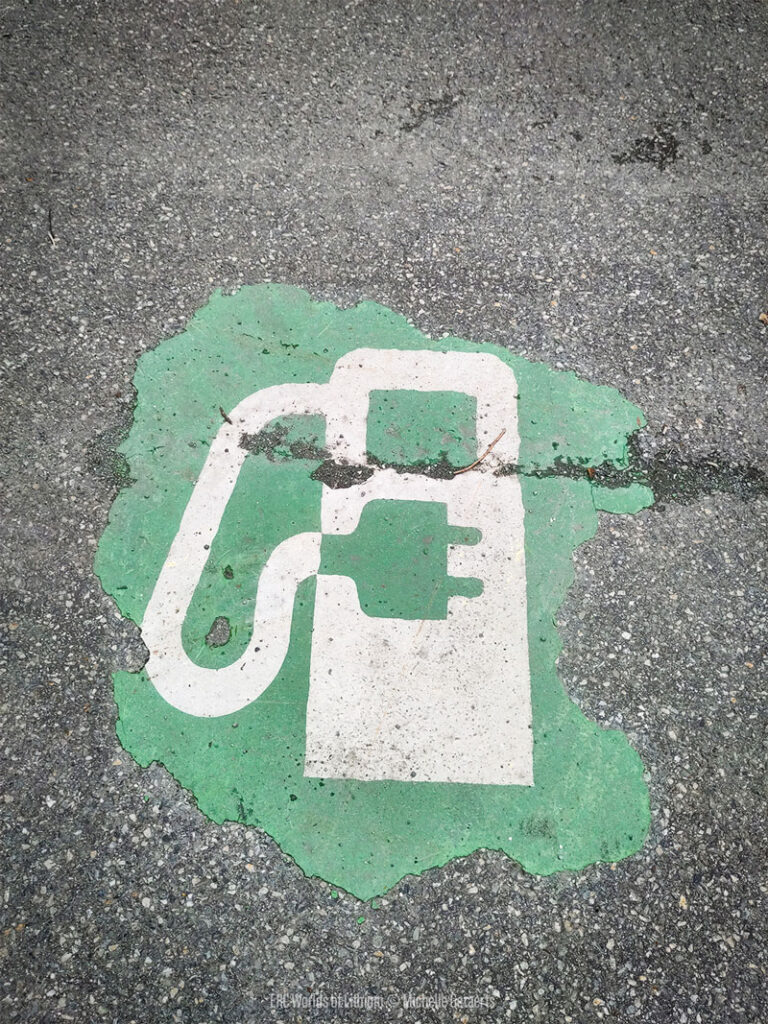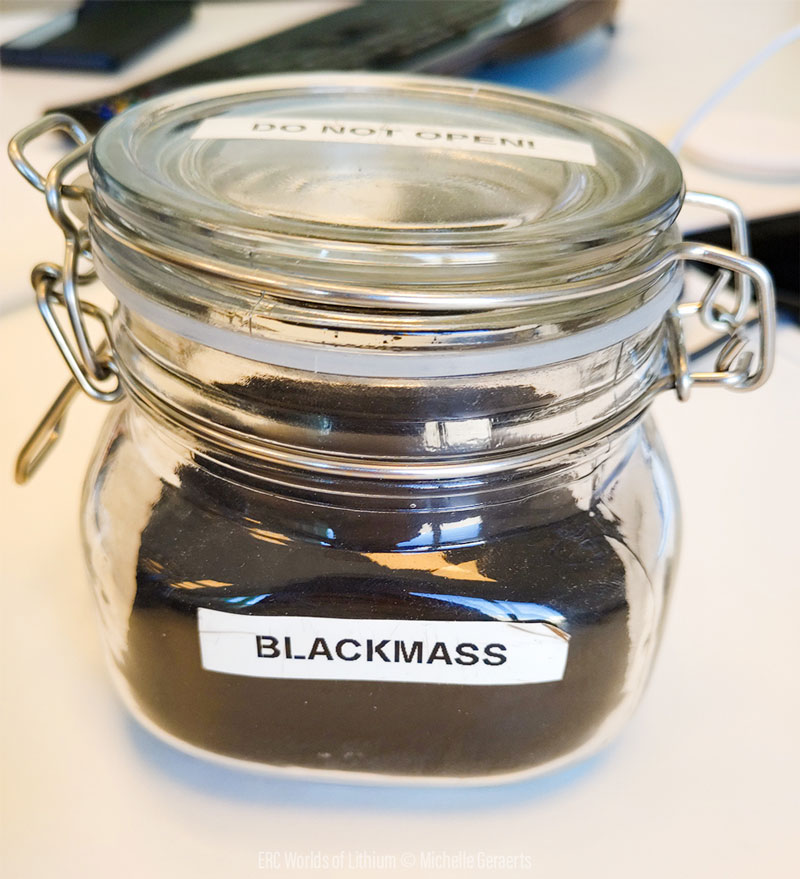Research
As responsible PhD researcher of the Worlds of Lithium work-package on Norway, Michelle focuses on the afterlives of lithium batteries in the midst of Norway’s energy transition to electric mobility. Following the spent car batteries from their end-of-life onwards, she collected many of the stories forged by the movement and transformation of battery materials.
Her research tells stories about repair and recycling from pilot to commercial scale. It tells stories about the multiplicity of post-fossil and post-extractivist futures imagined for Norway by different actors. Key threads throughout this research are: the distribution of responsibility for batteries-as-waste; industrial-societal transformations brought about by the electric mobility project (such as pilot battery production plants impacting towns and landscapes); environmental issues that slip through the rigid frameworks of circular economy; scientists’ daily encounters and collaborations with battery materials in the laboratory; and activists efforts to reimagine the meaning of decarbonising society.
Michelle shows through qualitative multi-sited research that Norway’s green transition-future is not a singular story, but rather multiplies into a meshwork of connections and concerns if approached through intersecting lenses of STS, anthropology, multisensory art, and activist praxis. What is the role of academic institutions in making futures? Whose imaginaries are included, and whose are not? What responses to socio-ecological crises are popularly positioned as hopeful and why? Whose future-making imaginaries and practices escape the technoscientific gaze? Through such questions, this inquiry of Norwegian electromobility deconstructs the technology of the lithium battery, and investigates the web of concerns and hopes at stake for different actors, communities and landscapes involved and affected.
Fieldsite
Michelle’s research has been conducted across different sites in Norway, but mainly in Trondheim, where she was based for 11 months. The city is home to the largest technical university of Norway, where she participated in and observed the work of scientists and students to gain an understanding of the creation, history, and dissemination of knowledge around battery electric vehicles, the electrification of transport, recycling and circular economy of battery materials. Next to the study of scientific practices, Michelle’s research in Trondheim included participating in events and actions of different (activist) organisations critical of green growth and oil explorations.
Another site of research was the ‘Battery Coast’, in the south of Norway, where different industrial, business- and policy-related actors are based. This region was selected because it is home to: two key research institutes following the lithium battery at end-of-life; a lithium battery repair workshop; a state-of-the-art conference of the Hydrometallurgy Network (all in Oslo); Norway’s only e-car focused car workshop and garage (Lierskogen); the central collection and sorting station for all spent e-car batteries (Sandefjord); a gigafactory pilot plant (Arendal); and a nickel-cobalt-copper and black mass-processing plant (Kristiansand).
Additionally, Fredrikstad became an important fieldsite due to its pilot recycling plant that opened during Michelle’s stay in Norway. Lastly, the northern Norwegian town Mo i Rana was selected as a field site for its pilot gigafactory-production plant, coming with huge societal impact on local and regional scale.




